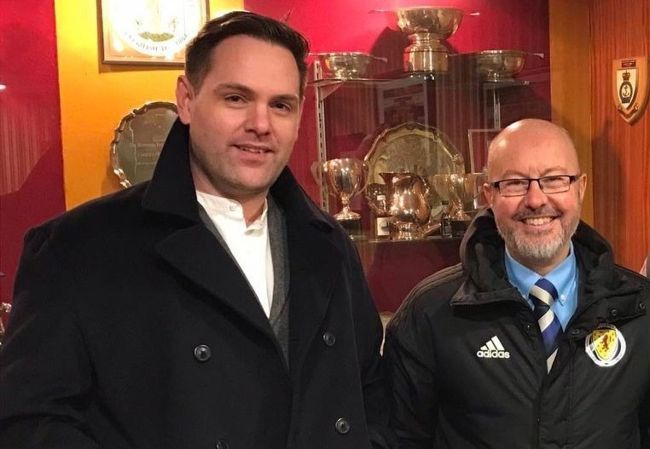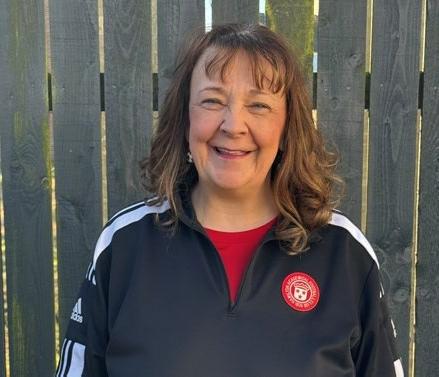‘A trusted person’
National Sports Sunday, organised by Sports Chaplaincy UK, takes place on May 12. Jackie Macadam learns more about sports chaplaincy in Scotland.
“WHY would the world of football need chaplains? Playing football – living the dream! That’s the perception of most football fans. And for the elite few that may indeed be the reality, however, for the vast majority, football is not so glamorous. Living the dream can become a nightmare,” says Mark Fleming, the National Director for Sports Chaplaincy, Scotland.
“Players are often de-humanised by supporters. If they play well, score and the team wins they might enjoy the attention and adoration of many people to the point of being deified or idolised. However, it can just easily change to them being demonised or vilified, facing vitriolic abuse.
“There is a great pressure for elite sports people to succeed and a relatively short time span within which to achieve that success.
“The implications of injury may be farreaching. it is a long-term injury, they worry that they may never play again.
“When players are told that their services are no longer required, it can have an adverse effect on their sense of worth to society, to their families. So the pressure to succeed alongside the great possibility of failure with the demoralisation it brings are potent forces in having a negative effect on a player’s mental health,” he says.
“This is where chaplains have become invaluable within the beautiful game. Chaplains model God’s value system by viewing and treating people the way they have been viewed and treated by God – through His unconditional love and grace.”
Mark became chaplain to Partick Thistle FC in 1998 and at that time he was one of just a small handful. However, after the Scottish Football Association asked Mark to develop chaplaincy across the nation, there are now around 150 football club chaplains in both men’s and women’s football. Chaplaincy has also developed in other sports such as shinty, rugby, basketball and athletics.

Stuart Finlayson (left) and Mark Fleming (right)

Rev Jillian Storrie
Mark explains: “The role is basically to provide pastoral support for the mental, emotional and spiritual wellbeing of all people within the club.”
An increasing number of churches are recognising that sports chaplaincy is a great way of building bridges into a local community. Mark explains: “The commitment is generally one evening a week and home match-days. If you ask any of the current chaplains they will tell you it’s one of the most rewarding aspects of their ministry.”
The Rev Jillian Storrie is chaplain to Hamilton Academical Women’s Football Team.
“I started with the team in September 2022, and I am now nearing the end of my third full season with the team and looking forward to many more seasons to go!” she says.
“When you mention sports chaplaincy, some folk have the picture in their heads that I go in and preach the Gospel to them, and while I might do that indirectly that is not where I see my role.
“I see my role as being a confidante, a trusted person who is there for all of the team and to support and display the Fruits of the Spirit, showing kindness, patience, trust, love, gentleness and more when things in their personal and football life get difficult and they need someone to talk to too.
“Not only am I there to support them but they have no idea how much being part of this team fills and refuels me.”
Attending training and all home games (and away games when she can) has proved to be an enriching experience. “During the games I sit in the dug-out with the team. I look forward to the day when I’m called up as a substitute!”
If anyone would like to find out how they get involved with sports chaplaincy in Scotland, they should contact Mark at mark.fleming@sportchaplaincy.org.uk and read his book, Confessions of a Football Chaplain.